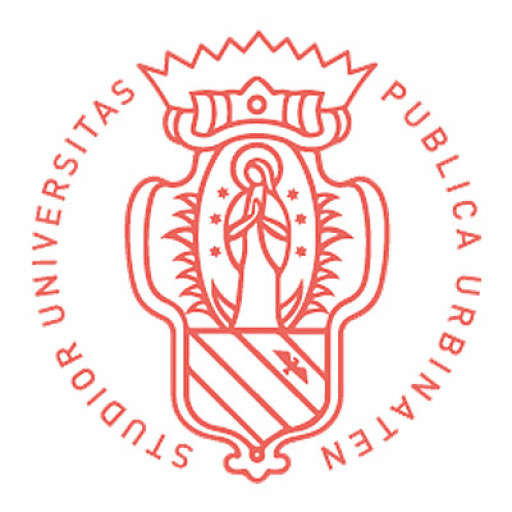The Fauna Sciences program at the University of Florence provides students with comprehensive training in the biological and ecological aspects of animal life. This undergraduate degree is designed to equip students with the scientific knowledge and practical skills necessary to understand, investigate, and conserve animal species in their natural habitats. Throughout the course, students explore a wide range of topics, including animal biology, ecology, physiology, behavior, and conservation strategies. The program emphasizes both theoretical foundations and practical applications, offering hands-on experiences through laboratory work, field trips, and internships in environmental and conservation organizations. Students learn about the identification and classification of various fauna, their roles within ecosystems, and the impacts of human activities on wildlife populations. The curriculum also covers the use of modern technologies and research methodologies employed in fauna sciences, such as GIS, remote sensing, and statistical analysis. Additionally, students gain insights into conservation policies, biodiversity management, and sustainable practices necessary to protect endangered species and habitats. The program aims to prepare graduates for careers in environmental consultancy, wildlife management, research institutions, conservation NGOs, and governmental agencies. Graduates will be capable of conducting scientific studies, monitoring wildlife populations, and developing conservation strategies backed by rigorous scientific research. The Fauna Sciences program encourages an interdisciplinary approach, integrating knowledge from biology, ecology, environmental science, and policy-making to create well-rounded professionals dedicated to the preservation of wildlife and natural ecosystems. Students also have the opportunity to participate in international projects and collaborations, enhancing their global perspective and professional network. Upon completion, graduates are highly competitive in the job market and equipped to contribute meaningfully to ecological preservation and scientific research initiatives worldwide.
The Bachelor’s degree in Fauna Sciences at the University of Florence requires students to complete a comprehensive curriculum that provides a solid foundation in zoology, ecology, and conservation biology. The program emphasizes theoretical knowledge coupled with practical skills, including laboratory work, field studies, and research projects. Students are expected to acquire a thorough understanding of animal behavior, physiology, taxonomy, and biodiversity, as well as ecological interactions and environmental issues affecting faunal populations. The program includes mandatory coursework in general biology, animal biology, ecology, systemic zoology, genetics, and conservation techniques. In addition to core subjects, students can choose elective courses based on their interests, such as marine fauna, terrestrial ecosystems, or wildlife management. Practical training is integrated into the curriculum through field excursions, internships, and laboratory exercises designed to develop skills in species identification, data collection, and statistical analysis. The program also encourages interdisciplinary learning by incorporating courses on environmental policy, ethics, and sustainable development. Students are required to participate in research projects under faculty supervision, which may involve fieldwork in protected areas or collaborations with conservation organizations. To graduate, students must successfully complete coursework assessments, practical exams, and a final thesis that demonstrates their ability to conduct independent research on a specific fauna-related topic. Language proficiency in English may be necessary for accessing certain scientific materials and participating in exchange programs. The program aims to prepare graduates for careers in wildlife conservation, environmental consultancy, research institutions, or further postgraduate studies. Overall, the program ensures that students develop critical thinking, analytical skills, and a deep understanding of fauna sciences, equipping them to contribute effectively to the preservation of biodiversity and ecosystems.
The Fauna Sciences degree program at the University of Florence is designed to provide students with a comprehensive understanding of animal biology, ecology, and conservation. The curriculum emphasizes the study of various animal species, their habitats, behavioral patterns, and the interactions they have with their ecosystems. Students are introduced to fundamental biological sciences, including genetics, physiology, and anatomy, to build a solid scientific foundation for studying fauna. The program also covers topics related to wildlife management, environmental impact assessment, and conservation strategies, preparing graduates for careers in ecological research, wildlife preservation, and environmental consultancy.
Throughout the course, students engage in practical laboratory work, field research, and internships, allowing them to apply theoretical knowledge in real-world scenarios. The university collaborates with national and international research institutions, NGOs, and environmental agencies to facilitate hands-on experiences and professional networking opportunities. Students are encouraged to develop skills in data collection, analysis, and reporting, crucial for effective wildlife management and conservation projects.
The program aims to cultivate an interdisciplinary approach, integrating aspects of biology, ecology, and environmental sciences, ensuring graduates are well-equipped to address contemporary challenges in fauna conservation. The teaching staff includes experienced researchers and practitioners dedicated to advancing knowledge in the field of fauna sciences. Graduates of this program can pursue careers as wildlife biologists, conservation officers, environmental consultants, or continue their studies at postgraduate levels. The program prepares students to engage actively in efforts to preserve biodiversity and sustainable coexistence between humans and natural ecosystems.
This degree program is typically structured over three years and may include coursework, research projects, and a final thesis. It often encourages student participation in national and international conferences, summer schools, and workshops, fostering a vibrant academic and professional community focused on fauna studies. The university emphasizes the importance of scientific research and ethical considerations in the management and study of animal populations, aiming to develop responsible professionals committed to ecological sustainability.
Overall, the Fauna Sciences program at the University of Florence offers a rigorous and enriching educational experience, combining theoretical instruction with practical application, to prepare students for meaningful contributions in the field of wildlife and environmental conservation.










